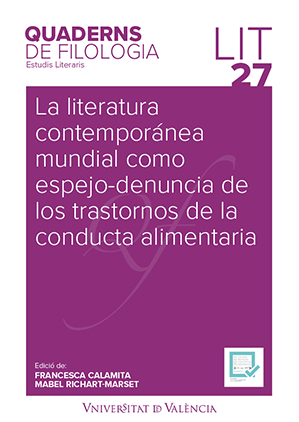Bodies in the digital era:Historias del Silicon Valley by Herminia Gil Guerrero
DOI:
https://doi.org/10.7203/qdfed.27.25742Keywords:
contemporary literature, cultural identity, eating disorders, digital culture, social relations Abstract
Abstract
The main characters in some of the short stories Historias de Silicon Valley by H. Gil Guerrero (2019) are contemporary archetypes of the so-called useful and docile individual who appear to be asexual and beyond gender differences. While working for prestigious digital technology companies, these characters pursue optimal efficiency at the cost of personal time and healthy lifestyles. Gil Guerrero portrays a generation of young people whose system of communication in social relations fails as it is based on images (social media) and quick exchange of short messages (chats). Isolation leads these young to alienation. Certain circumstances that emerge from the digital era trigger depression, burnout, and alienation among young women. This article analyzes these women’s experiences as well as their abnormal and instable relationship with food, all of which results in their bodies being neglected through medication and compulsive eating.
 Downloads
Downloads
Downloads
Published
How to Cite
-
Abstract482
-
PDF (Español)449
Issue
Section
License
 Este obra está bajo una licencia de Creative Commons Reconocimiento-NoComercial-SinObraDerivada 4.0 Internacional.
Este obra está bajo una licencia de Creative Commons Reconocimiento-NoComercial-SinObraDerivada 4.0 Internacional.
Authors who publish with this journal agree to the following terms:
- Authors retain copyright and grant the journal right of first publication with the work simultaneously licensed under a Creative Commons Attribution License that allows others to share the work with an acknowledgement of the work's authorship and initial publication in this journal.
- Authors are able to enter into separate, additional contractual arrangements for the non-exclusive distribution of the journal's published version of the work (e.g., post it to an institutional repository or publish it in a book), with an acknowledgement of its initial publication in this journal.
- Authors are permitted and encouraged to post their work online (e.g., in institutional repositories or on their website) prior to and during the submission process, as it can lead to productive exchanges, as well as earlier and greater citation of published work (See The Effect of Open Access).




